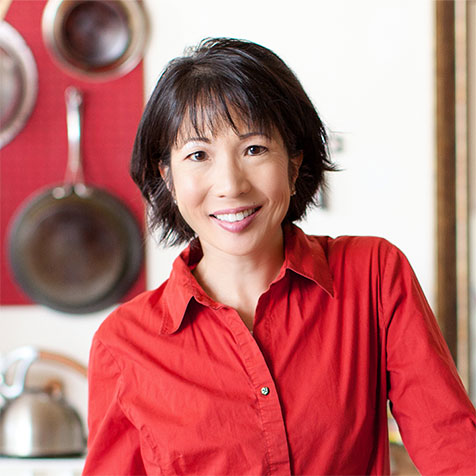
NSAIDs (non-steroidal anti-inflammatory drugs) are standard treatment for inflammation and pain. But if you have GI “issues”, and Celiac Disease, take a moment to read why you should consider other options for treatment.
WHY NO NSAIDs FOR YOU
If you have an autoimmune disease and/or gastrointestinal issues, strongly consider not taking NSAIDs (non-steroidal anti-inflammatory drugs) for pain relief or as an anti-inflammatory medicine, and discuss with your doctor other options for pain or inflammation treatment.
Yes, that’s you, even the one who is saying, “But I don’t have Celiac Disease,” but you do have GI “issues”.
I cannot tell you how many times medical providers over the years have attempted to prescribe me a non-steroidal anti-inflammatory medication, also referred to as an NSAID, and then stare blankly when I remind the physician I have Celiac Disease.
*insert the sound of crickets*
Perhaps you too have wondered about this. The medication itself does not contain gluten in it; therefore, it is safe for people with Celiac Disease and Autoimmune Disease, right?
Um, nope.
Read more about why you want to avoid NSAIDs.
NSAIDs and Celiac Disease: Just Say NO
If you Google the subject of NSAIDs and Celiac Disease, most of the non-medical posts (not from a verifiable medical source) will discuss whether or not the NSAIDs, such as Aleve or Ibuprofen, are made with gluten in them.
However, if you dig a bit deeper and turn to sources that back their findings with medical research, you will encounter another layer of discussion around the findings in people with Celiac Disease after biopsy as a part of the diagnostic process. For example, on the Celiac.org site, you’ll see a reference to the Marsh Classification on histological findings in Celiac Disease diagnosis. Essentially, a GI doctor performs an endoscopy on a patient by gathering a tissue sample from the small intestine, places it on a slide under a microscope, and examines the slide for the amount of damage to the villi.
A GI doctor performing the endoscopy will be looking for any significant change from normal by examining about 4-6 samples in different sections of the intestinal lining. What s/he is looking for is an increase in the number of intra-epithelial lympocytes (IELS), as well as the shape of the villi themselves (i.e. round and healthy vs flattened and damaged).
In a Marsh Type 1 classification, there is an increase in the IELS, and more interesting to my discussion here, that includes people who have taken NSAIDs. To be completely clear, a person may show up with IELS increase and not have used NSAID therapy, as there are other mechanisms involved. But when a medical description of cause includes NSAID therapy, it means that enough studies were made to find a statistically significant correlation between the therapy and the result, therefore justifying a causal relationship.
In other words, NSAID therapy is statistically correlated as a cause of Type I IEAS increases seen in people with Celiac Disease, as well as findings in a family member of someone with Celiac Disease (even if the family member does not have CD). [You following this? Whoa.]
Leaky Gut Syndrome and NSAIDs
Should you take NSAIDs if you don’t have Celiac Disease, but you have a Leaky Gut Syndrome? The problem with answering this question is that right now, the medical community is divided about what this mysterious Leaky Gut actually is. What they do seem to agree upon is that it’s a catch phrase for a permeable, sensitive small intestinal lining that allows food particles to leak into the abdominal cavity through unclosed junctions in the mucosa that should otherwise be tightly closed. This phrase is used when doctors don’t have a complete diagnosis of an individual who is showing these leaky gut symptoms.
As I am not your doctor, you should have that discussion with your doctor. And at the same time, I can see how this plays out. Your doctor may not know the answer to whether or not you can have NSAIDs with a Leaky gut, and s/he defaults to the current standard in medicine: you can take an NSAID, because there haven’t been enough studies to prohibit it.
However, let me argue the point for a moment. If you have Leaky Gut Syndrome symptoms, where your gut permeability is already compromised, what exactly do you understand a NSAID will do to the gut permeability of an already compromised intestinal lining? Since we already known that NSAID therapy can cause ulcers in normal populations with long-term use, I believe you can extrapolate to your compromised gut lining. Does that seem clearer?
For some of you, the choice is clear as glass. You have joint or muscle pain, and you take an Aleve. Under two hours later, you are having cramping and diarrhea. Case closed.
For others of you, particularly if you are fairly asymptomatic with Celiac Disease (i.e. little to no overt symptoms), it may seem harder to judge. Again, you can try turning to the latest information on Leaky Gut Syndrome (aka intestinal permeability studies), and find evidence showing NSAID therapy is contraindicated in anyone with a leaky gut symptoms. In fact, at least one study has shown that the intestinal barrier becomes MORE permeable when it is subjected to NSAID and similar type therapies. Not only that, the study suggests that NSAID therapy may make the intestinal lining more permeable, and therefore more susceptible for any gluten in the diet to punch its way through the intestinal lining, causing intestinal inflammation.
So, what did I just say? Based on the study, avoiding NSAID therapy if you have a compromised gut is the safest route of treatment, regardless of whether or not the drug itself contains gluten.
So, What Do I Take for Pain and Inflammation?
With an NSAID being the standard OTC drug of choice for pain and inflammation, it’s a real challenge to look at pain management without the use of an NSAID.
I took a look at available options for pain relief that was not an NSAID, and here’s what I found:
Tumeric and Curcumin (orally in tincture, tea; as a paste on the joint), Capsaisin (cayenne pepper), and Bromelain (taken between meals). I have personally tried Tumeric and Curcumin with good results.
Magnesium – it’s been used to treat muscle cramps and pain (or prevent them), and is usually taken orally as a supplement. I personally take Magnesium through one of my supplement options.
Traumeel cream, Tiger Balm ointment – for muscular pain
You can obtain any of these from a reputable supplement store that boasts pharmaceutical-quality products, and alternatively, you can go to your ND and inquire about specific products that he/she trusts.
With a doctor’s prescription, and careful supervision, you may wish to consider:
A mild opiate, such as codeine, for a short period of time (not long enough to promote addiction). It’s used to treat pain, coughs, and diarrhea, and has a constipating effect (so you may need to increase your fiber intake, and monitor water intake).
Prednisone taper — a short window of anti-inflammatory steroid therapy, usually done over six days. This is usually warranted when there is widespread inflammation and pain, with no other available options. When people see the word Prednisone, they often freak out because they are imagining a long-term dose that causes side effects such as Moon Face and Buffalo Hump (an actual change to the appearance of the face and body with long-term steroid use). With a Prednisone taper, we’re talking about six to ten days of medication.
I hope that this post has given you some things to think about regarding NSAID use and your available options for pain management and anti-inflammation treatment. Disclosure: Please notice that I do not sell any of these products at this time, and that I am not endorsing any particular brand of any of these supplements.
Onwards and Upwards, my Hungry (and Health-Seeking) Minions!




